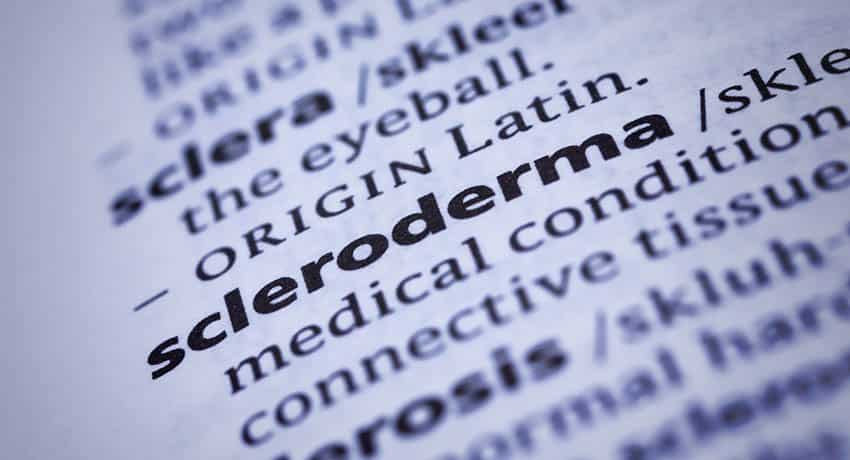Scleroderma Awareness Month is celebrated annually in June as a time to highlight the rare condition that affects one in every 4,000 adults in the U.S. Maureen D. Mayes, MD, rheumatologist with UT Physicians and director of the Scleroderma Clinical and Research Program at McGovern Medical School at UTHealth, shares her insight on the disease and how UT Physicians can help those diagnosed with it.
There are many different types of scleroderma. Morphea, a form of the condition, causes patches of thickened skin and doesn’t affect the rest of the body. However, those diagnosed with systemic sclerosis typically have symptoms that involve internal organs, as well as the skin. Among all patients with scleroderma, there is a variation in how their skin will be affected.
Mayes says the most common symptom among patients with systemic scleroderma is Raynaud’s phenomenon.

“Raynaud’s phenomenon is when a person’s fingertips turn blue, white, or get extremely pale when exposed to colder temperatures,” said Mayes, who’s also a professor in the Department of Internal Medicine at McGovern Medical School. “Another widespread reported symptom is persistent swelling of the fingers.”
With symptoms similar to other autoimmune diseases, diagnosing this condition is difficult. It can start in many different ways and its triggers for development are mostly unknown. Genetics can play a role in a person’s susceptibility, although most patients diagnosed with the disease have no known family history. Limited research suggests that environmental triggers, such as exposure to certain illnesses or harmful substances, as well as immune system problems can increase someone’s chances of developing scleroderma.
While there is no known cure for the condition, individualized treatment plans based on the patient’s needs can be quite successful.
“Some of my patients are not on any medication, while others are on several. It depends on the specific organs involved in each case,” Mayes reported. “They have to be treated on an individual basis because no two patients are alike.”
Mayes also recommends strategies to manage Raynaud’s phenomenon and reflux, which is common if the condition affects a patient’s digestive tract.
“We work through cold avoidance strategies like having gloves ready for grocery trips or having extra layers in case you’re going to a place that might be cold inside,” said Mayes. “For reflux, keeping your head elevated, avoiding eating late at night, and staying away from certain trigger foods can help with digestion issues.”
Those diagnosed with this condition and interested in personalized care can contact the UT Physicians scleroderma program, housed within the UT Physicians Center for Autoimmunity.
“At UT Physicians, we approach the ‘whole’ patient,” said Mayes. “We have a multidisciplinary team of experts that are ready to provide you with comprehensive care.”



